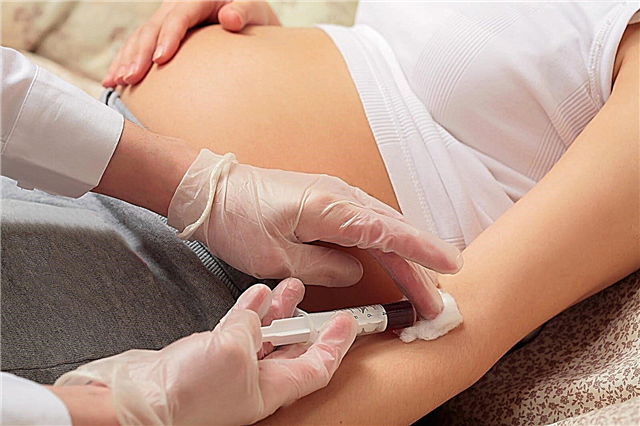In the first few months after birth, almost all newborn babies suffer from certain problems associated with the digestive process. The reason is the not fully formed digestive system. Due to the underdevelopment of the digestive tract, the child may be bothered by rather painful colic, excessive gas formation, parents often hear the crumbs rumbling in the tummy. When a baby is tormented by such intestinal disorders, he begins to sleep and eat poorly, irritability and anxiety appear. Parents should know why their baby's stomach is rumbling and what to do about it.

Crying baby
Causes of rumbling in the stomach in a baby
During the digestion of food, the baby's intestines can make a wide variety of sounds. To understand why the belly of an infant is rumbling, it is necessary to understand the reason that caused such a symptom. The most common of these is swallowing excess air while sucking. This happens with hv, when, with an abundance of milk from the mother, the child does not have time to swallow it or at the very beginning of feeding it does not take the breast correctly. This is what provokes the swallowing of air and further rumbling in the tummy. It may also appear due to the influence of other factors.
Stomach bubbling and gas
The first signs of bubbling in a small tummy may appear even during feeding or immediately after it. Usually, when the stomach hurts and growls in a small child, it is difficult not to notice it. Symptoms that worsen after eating will be something like this:
- If you put your hand on the baby's tummy, then you can feel that everything in the small intestine is moving and vibrating;
- The newborn begins to be capricious, throwing his chest, crying, wriggling in pain;
- The child becomes restless and irritable, as he suffers from severe abdominal pain;
- The baby's sleep is disturbed, he twitches all the time and often presses his legs to his tummy;
- In infants, increased gas formation and flatulence begin.
Note! When the child grows, green stools may appear, its consistency is both liquid and normal.

The baby's tummy growls
Rumbling due to dysbiosis
If a child's rumbling occurs already during feeding, and the stool acquires a liquid consistency with foamy blotches, this may be a symptom of an incipient dysbiosis. This disease develops due to the fact that the microflora in the intestine is disturbed. For its proper functioning, bifido and lactobacilli are necessary, which have a protective function.
When pathological bacteria begin to multiply in a small organism, this provokes the onset of dysbiosis. Possible causes of dysbiosis in infants:
- improper nutrition of the mother;
- allergic dermatitis;
- bronchial asthma;
- decreased immunity;
- chronic gastritis and colitis.
Note! To start treatment, you will need to pass a stool test. Based on the results obtained, the doctor will prescribe the appropriate therapy, which will normalize the bowel function.
Intestinal colic
If, after feeding, the baby begins to rumble in the tummy, and he cries, then he has colic. In a newborn baby, the intestines are sterile, when he receives the first portion of colostrum, then the microflora is established in it. This often provokes fermentation, resulting in bloating. This condition does not require treatment, you need to help the baby cope with the problem, relieve colic attacks and pay more attention.
Important! With the help of massage, you can help the baby get rid of unnecessary gas. It will become much easier for him and he will sleep peacefully.

Newborn baby has colic
The kid got hungry
The fact that the baby is hungry can be recognized by crying. In the first year of life, the baby conducts a dialogue with her mother. If the baby starts to boil in the tummy, you need to feed him as soon as possible. If after feeding the stomach stopped rumbling, the baby does not cry, it means that he was just hungry.
Not enough enzymes
Frequent rumbling in the belly of a child is a sign of a lack of enzyme substances. Most often, this phenomenon occurs during the introduction of complementary foods or feeding with a mixture, since certain enzymes produced by the body are needed to digest food. Due to the lack of one of the substances, food is not digested, an increase in gases occurs, as a result, fermentation in the stomach. Decreased appetite, loose stools, nausea and vomiting appear in the child.
Important! Enzymatic deficiency is easy to restore, for this you need to consult a doctor for further examination. Based on the results obtained, the doctor will prescribe the necessary supplements to help fill in the missing substances.
Reasons for seething at night
If a child's tummy is boiling at night, then perhaps he is worried about excessive gas formation. Symptoms are constant crying, twisting of the legs, attempts to push, rumbling sounds.
Additional Information. To avoid such symptoms will help the upright position of the crumbs after feeding for half an hour, until the belching of excess air appears. You can also put a warm diaper on your baby's tummy or massage in a clockwise direction.

The baby cries at night
Main signs and symptoms
Rumbling in a child's stomach is usually accompanied by certain symptoms:
- soreness of the tummy with light pressure on it;
- the baby squeezes and twists with his legs;
- manifestation of anxiety;
- refusal to eat;
- frequent unreasonable whims;
- restless sleep, frequent waking up, crying in the morning;
- increased gas formation, bloating;
- changing the consistency of the stool, it becomes liquid and greenish in color.
Note! Caring for, affection and joint sleep with mom will help relieve colic.

Newborn baby crying
What to do with a rumbling stomach
If the baby's tummy is humming, and this gives him suffering, then you need to immediately help him:
- Carry the baby in an upright position for several minutes. This will help regurgitate the air swallowed while eating, and the baby will feel better.
- Massage your tummy. Stroke the abdominal wall of the crumbs clockwise. This will help the gas workers to escape. After that, press the baby's legs to the tummy several times.
Remember! It is not worth doing gymnastics immediately after feeding.
- Put a warm diaper or heating pad on the baby's tummy. The warmth will help ease cramping and pain.
- Apply drugs. The baby can be given Espumisan, Bobotik, Smecta.
Which doctor to contact
In most cases, a newborn baby grumbles in the stomach for temporary reasons that are not serious disruptions in the body. It is better to consult a pediatrician for advice, especially if the rumbling is accompanied by other symptoms:
- high temperature;
- weight loss;
- loose stools with foam;
- frequent constipation;
- severe vomiting and diarrhea.
Depending on the symptoms, the pediatrician will prescribe certain tests, talk about preventive measures and proper nutrition.

Doctor examination
Diagnostics
When rumbling in the stomach, it is necessary to establish the cause and prescribe treatment. For this, a number of measures are taken to determine the diagnosis:
- blood test;
- Analysis of urine;
- gastroendoscopy to check for diseases of the stomach and duodenum;
- Ultrasound of the abdominal organs;
- organ x-rays;
- visual examination of the child and palpation of the abdominal organs.
Having determined the cause of the rumbling in the abdomen and identifying the disease, the doctor will prescribe treatment.
Prevention
Performing simple preventive actions will help avoid the appearance of rumbling in the baby's tummy:
- Massage. Simple massage movements will help remove gas and improve bowel function.
- Do gymnastics. You can do the exercise "bicycle", pulling the legs to the chest, exercise "birch". This normalizes abdominal function and strengthens the immune system.
- Feed when hungry. Pediatricians recommend feeding babies on demand. Observe how the baby eats and takes the breast, do not allow air to swallow. The newborn should regurgitate air after each feeding. Feed without haste.
Constant rumbling in the tummy of a newborn is a physiological sign of the digestive system. If there are no other dangerous symptoms, there is no need to worry about the baby's health. The problem will go away by itself in a few months. Parents just need to help the baby to endure this condition as painlessly as possible.



